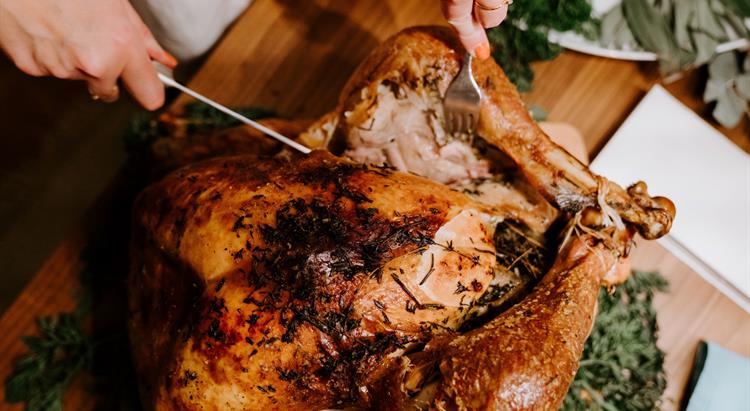23 December 2020

Islanders are being given ten top food safety tips this festive season, in anticipation of many people trying to cook Christmas dinner for the first time.
Government of Jersey Environmental Health Officer Eleni Middleton said: “With restaurants closed, travel restricted and gatherings limited, people are more likely to find themselves having to cook their own turkey – possibly for the first time if they have traditionally gone to their parents’ home.
“The Environmental Health Team deal with around 100 confirmed cases of food poisoning over the course of each year, mostly from restaurants and takeaways.
"While those cases are probably going to fall in number this year, we don’t want them to be replaced by cases of food poisoning because people haven’t known about the hygiene measures they should take when cooking at home. We recommend you follow our top tips to help prevent food poisoning this festive season.”
Top 10 food safety tips:
- When shopping, take enough bags to ensure that cooked and raw food can be transported separately
- Clear out your fridge / freezer to make room for the Christmas food shop
- Make a food plan for Christmas dinner and the days after to ensure that you make the most of leftovers while ensuring that they remain safe to eat
- Use a fridge thermometer to ensure that your fridge is cold enough (between 0-5°C), and check that it is after your food shop is put away
- Take the meat out freezer and defrost in fridge or a cool place – 10-12 hours of defrost time per kg (that means up to four days for a 7 kg turkey defrosting in a fridge)
- Wash your hands with warm water and anti-bacterial soap before and during food preparation
- Use different utensils, plates and chopping boards for raw and ready to eat / cooked food if you can or wash thoroughly in-between tasks. If not, ask the butcher to cut the meat into smaller pieces so that you can put it straight in the oven when you need to.
- Do not wash raw poultry and other meats.
- Use a probe thermometer to check the temperature of cooking meat – it should be cooked to 75°C in the thickest part
- Check safety information on food labels. Food will still be safe to eat after its ‘best before’ date but may not be as good in terms of quality.
More information can be found
online.